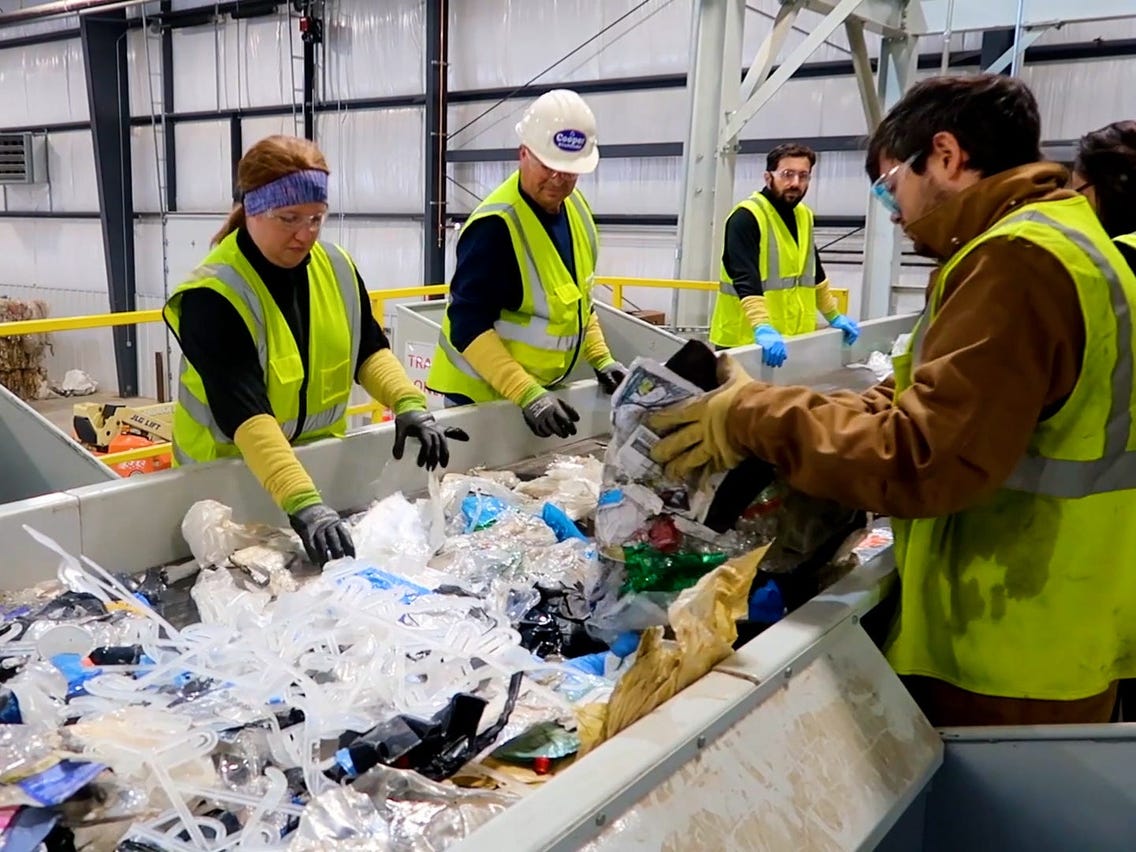- Waste solutions company Brightmark is converting plastic waste into fuel at its plant in Indiana.
- The company is aiming to process 100,000 tons of plastic next year, its first year of full-time operation.
- Studies show that by 2050, there will be more plastic waste in the ocean than fish — a trend Brightmark hopes to reverse.
Milk cartons, Styrofoam cups, grocery store bags — a new plant in Ashley, Indiana, wants them all.
Brightmark’s facility is the first of its kind in the US. It converts plastic waste into wax and eco-friendly fuels on a commercial scale, a process Brightmark hopes will revolutionize the plastic industry when it opens full time in 2021.
“We take a whole array of mixed waste that, until now, was not easily recyclable and reusable, and create circular economy solutions to some of our biggest environmental issues,” founder and CEO Bob Powell told Business Insider Today.
In its initial year, the plant will process close to 100,000 tons of plastic — about the weight of 600 blue whales — from waste management companies, manufacturers, and environmental groups.
The full conversion process is a company secret, but it begins with breaking bales of plastic apart, then shredding the plastic into small pellets.
“We’ve got employees that are basically refinery operators,” plant manager Jason Sasse added. “So they take the plastic pellet and they convert that into our finished products.”
Finished products include ultra-low sulfur diesel fuel, and companies like BP are already placing orders.
“The BPs of the world, who’ve been very forward-thinking and are looking to a net carbon-zero future, find our products to be really helpful,” Powell said. “And it’s much better than pulling crude oil out of the ground to make diesel.”
Critics of plastics-to-fuel technology say these types of plants can release harmful emissions of their own when plastic is heated during conversion — not to mention diesel’s own contribution to air pollution.
But Brightmark argues that its method is still better than what’s happening now.
Studies show that if the global plastic industry continues as it is, then by 2050 there will be more plastic waste in the ocean than fish.
“We need to change this, and it all starts right here in Ashley,” Powell told Business Insider Today. “So that by 2050, we can look back and say we changed the course of this issue we had with plastics.”
Similar companies are already operating in Europe and Asia. Before now, access to materials, the price of equivalent fuels, and operational costs have stopped them from reaching their potential in the US.
Brightmark is hoping it’s solved this equation. Demand for its solutions is high, and the company plans to build more plants across the country.
“We’ve had literally almost thousands of communities say, ‘We would like for you to help solve the plastic problem in our community,'” Powell said.
“The day that we ran out of plastics to put into our facilities would be a great day, because it means we’ve changed the waste problem in the world.”



